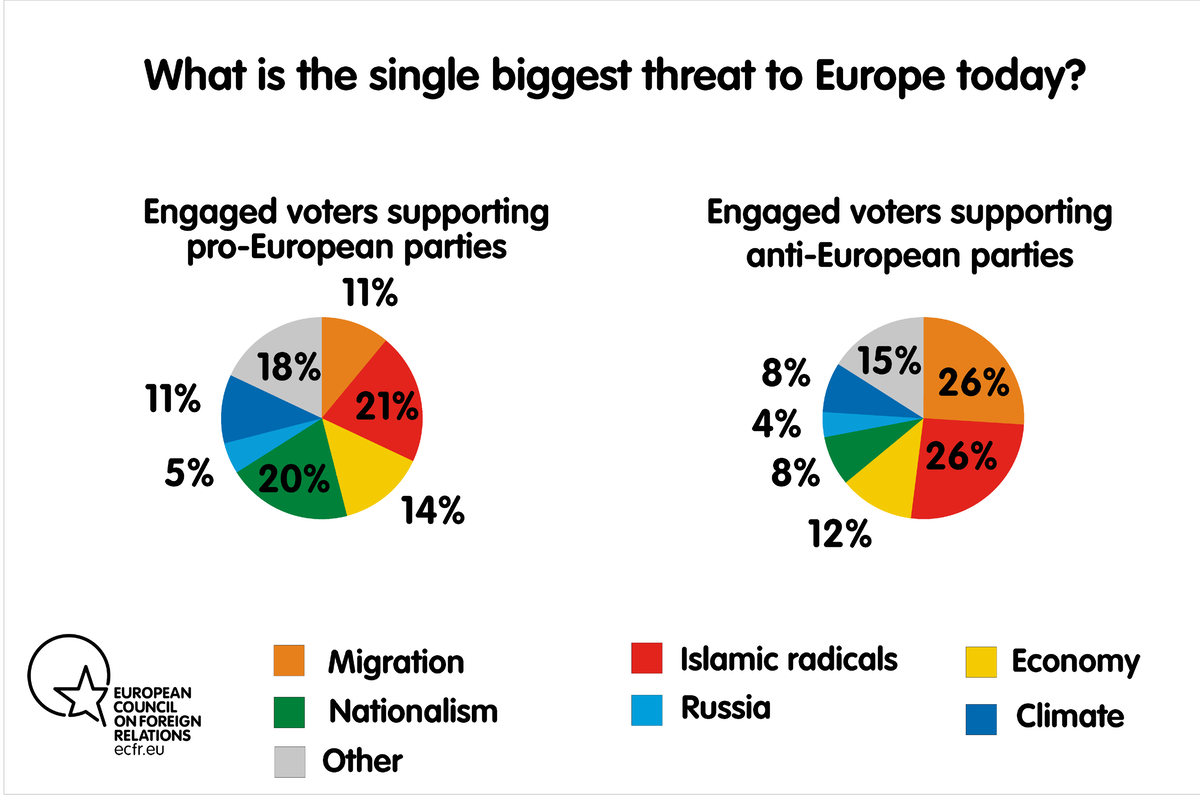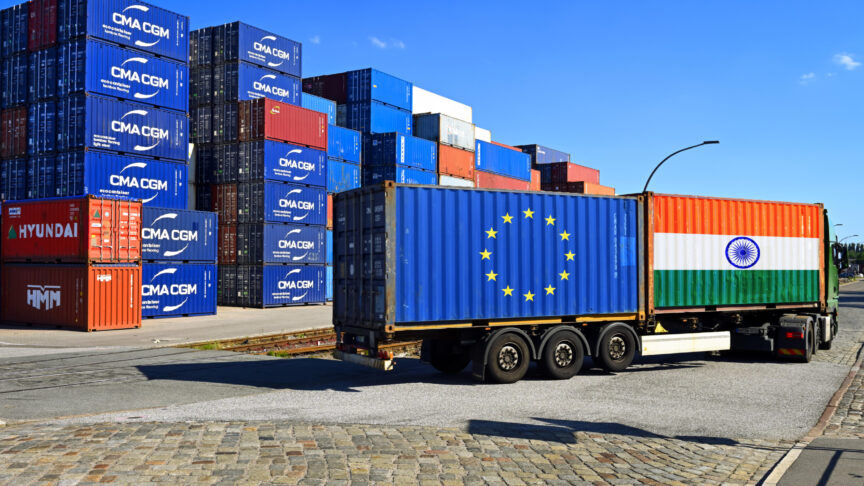The emigration election: Why the EU is not like America
Migration is not the defining issue for most Europeans. As they head to the polls, concerns about the economy and climate change often have higher or equal salience.
Americans tend to see foreign events through their own domestic lenses. In the case of the European parliamentary elections, the temptation is reinforced by the noisy arrival in Europe of erstwhile Trump adviser Steve Bannon. Bannon has been instrumental in establishing a pan-European alliance of nationalists for a “Common Sense Europe,” including Hungarian Prime Minister Viktor Orban and Italian League leader Matteo Salvini. Bannon’s role has made the election feel a little like a European version of the Trump revolution. The alliance has tried to turn the election into a referendum on migration, mobilising a sovereigntist coalition to dismantle the EU from the inside.
This effort reflects a belief that the 2015 migration crisis forever upended European politics. They see a permanent series of migration crises that will inevitably shift European politics in a sovereigntist direction.
In fact, such thinking is “very 2015.” Bannon and his European allies, transfixed by Trump’s success in bringing migration to the centre of American politics, have failed to notice that politics in the EU has moved on. As a recent poll by YouGov and the European Council of Foreign Relations (ECFR) of 14 EU countries (representing 80 percent of the seats in the European Parliament) shows, the campaign for a “fortress Europe” will not be a winning strategy.
The main reason is that migration is not a defining issue in most of Europe. The ECFR survey results show that a majority of people in every single country polled do not regard it as one of the top two issues facing their country. Hungary is the only country where immigration is still felt to be the biggest, or even second-biggest threat to the EU. In every other one of the 14 countries polled, one of at least five other themes emerged that are equally, if not more, important to Europeans.
In fact, in many European countries, the fear that nationalism will destroy the EU is squeezing out migration, effectively amounting to a backlash against Salvini’s European Alliance for People and Nations. Voters see this as at least as important as migration in Austria, Denmark, Germany, Greece, the Netherlands, Poland, and Spain. Nationalism is especially important to voters who say they are likely to turn out at the polls.
The second reason migration is unlikely to work is that even those who see migration as a top issue mean radically different things when they talk about it. The polls revealed a significant divide between those who worry predominantly about immigration in their countries and those who worry about emigration leading to a decline in the national population. Northern and Western Europe still do fear inflows, but majorities in Greece, Italy, Spain, Hungary, Poland, and Romania are much more worried about their citizens leaving. Incredibly, double-digit majorities in all these countries would like their governments to make it illegal for their own citizens to leave for long periods of time. In a Europe that prides itself on tearing down borders and promoting free travel, this desire for self-imprisonment is striking but perhaps understandable. In Romania, one in five citizens has left their country in the last decade. Bulgaria is the world’s fastest-shrinking country, having lost nearly 2 million of its 9 million inhabitants since 1989.
Crucially, the analysis also shows that concern about migration is much less of a driver of willingness to vote than other policy areas of concern, such as fear of nationalism. Migration does not particularly stand out from other fears as a driver, such as worries about the economy, the aging population, or climate change.
This may reflect some of the big changes in politics since 2015. The most obvious one is the collapse in the numbers of arrivals: Television screens are now more likely to be occupied by the chaos of Brexit than uncontrolled borders. It is also a reflection of the fact that all mainstream parties now advocate stronger controls on the EU’s border—and none of them advocates open borders.
All this means that the EU election will show that, unlike in the United States, the migration debate in Europe is no longer at the centre of politics. This does not in any sense spell the end of the populist challenge. There remains a broad dissatisfaction in Europe with the status quo and mainstream parties. But in Europe, it has become a lot more difficult to scare voters to the polls with images of caravans of criminals and promises of walls.
This article originally appeared on 13 May at The Brookings Instiution's Order from Chaos blog.

The European Council on Foreign Relations does not take collective positions. ECFR publications only represent the views of their individual authors.


